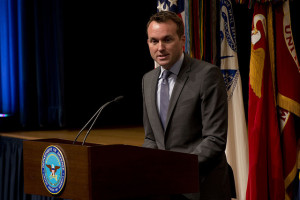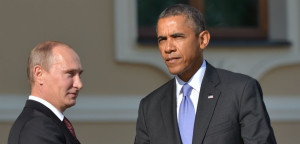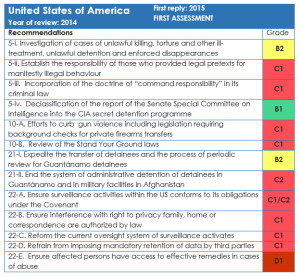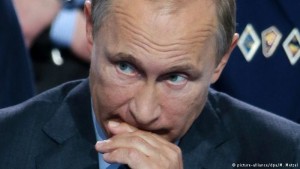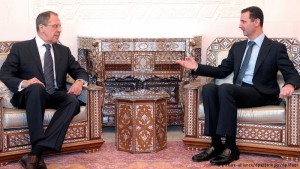New files show many other famous Americans moonlighted as spies
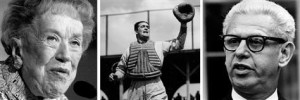
Government files released Thursday reveal new information about some of the more unexpected, and famous, World War II-era spies, including Julia Child, Boston Red Sox’ catcher Moe Berg and Supreme Court Justice Arthur Goldberg. Image: nbcnews
WASHINGTON — Before Julia Child became known to the world as a leading chef, she admitted at least one failing when applying for a job as a spy: impulsiveness.
At 28 as an advertising manager at a furniture store, Child clashed with new store managers and left her job abruptly.
“I made a tactical error and was out,” she explained in a handwritten note attached to her application to join the Office of Strategic Services, a World War II-era spy agency. “However, I learned a lot about advertising and wish I had been older and more experienced so that I could have handled the situation, as it was a most interesting position.”
Child was not yet married and was applying for the job under her maiden name, McWilliams, according to previously top-secret records released by the National Archives on Thursday.
Not to worry. She did well on her OSS job interview.
“Good impression, pleasant, alert, capable, very tall [she was 6 feet, 155 pounds],” her unnamed interviewer wrote.
She was hired in the summer of 1942 for clerical work with the intelligence agency and later worked directly for OSS Director William Donovan, the personnel records show.
Details about Child’s background and nearly 24,000 other OSS employees are revealed in the newly released documents, withheld from public view as classified records for decades by the CIA.
The 750,000 documents identify the vast spy network managed by the OSS, which later became the CIA. President Franklin Roosevelt created the OSS, the first centralized U.S. intelligence operation.
The OSS files offer details about other agents, including Supreme Court Justice Arthur Goldberg, major league catcher Moe Berg, historian Arthur Schlesinger Jr., and actor Sterling Hayden.
Other notables identified in the files include John Hemingway, son of author Ernest Hemingway; Kermit Roosevelt, son of President Theodore Roosevelt; and Miles Copeland, father of Stewart Copeland, drummer for the band The Police.
Some of those like Child have been identified previously as having worked for the OSS, but their personnel records never have been available before. Those records would show why they were hired, jobs they were assigned to and perhaps even missions they pursued while working for the agency.
Sterling Hayden (“Dr. Strangelove,” “The Godfather”) left Hollywood to serve anonymously under the name “John Hamilton” in the OSS’s information office during the war.
Arthur Goldberg actually infiltrated enemy lines and organized anti-Nazi European transportation workers into an extensive intelligence network during his wartime service with the OSS.
‘I think it’s terrific’
The release of the OSS personnel files unmasks one of the last secrets from the short-lived wartime intelligence agency, which for the most part was later folded into the CIA after President Truman disbanded it in 1945.
“I think it’s terrific,” said Elizabeth McIntosh, 93, a former OSS agent. “They’ve finally, after all these years, they’ve gotten the names out. All of these people had been told never to mention they were with the OSS.”
The CIA long resisted releasing the records. But a former CIA director, William Casey, himself an OSS veteran, cleared the way for transfer of millions of OSS documents to the National Archives when he took over the spy agency in 1981. The personnel files are the latest documents to be made public.
Information about OSS involvement was so guarded that relatives often could not confirm a family member’s work with the group.
Walter Mess, who handled covert OSS operations in Poland and North Africa, said he kept quiet for more than 50 years, only recently telling his wife of 62 years about his OSS activity.
“I was told to keep my mouth shut,” said Mess, now 93.
The files provide new information even for those most familiar with the agency. Charles Pinck, president of the OSS Society created by former OSS agents and their relatives, said the nearly 24,000 employees included in the archives far exceed previous estimates of 13,000.
The newly released documents will clarify these and other issues, said William Cunliffe, an archivist who has worked extensively with the OSS records at the National Archives.
“We’re saying the OSS was a lot bigger than they were saying,” he said.
Julia Child as world traveler
As for Julia Child’s career, she started as a typist and then as a research assistant.
In 1944, she was posted to Ceylon, where she befriended Fisher Howe, a fellow member of the OSS.
“We became fast friends there,” Howe, 94, said in an interview. “Julia was head of the secretariat, the documents control, and she was a genial person, and we rode elephants and went to restaurants together.”
While the OSS was a spy agency, Howe emphasized neither one of them were considered spies.
“You can be an able and effective intelligence officer but not be undercover, and we were not,” he said. “But she was a very effective person in the job she had.”
So effective she received the “Emblem of Meritorious Civilian Service” for her work at her final posting, in Chunking, China.
“Her drive and inherent cheerfulness, despite long hours of tedious work, served as a spur to greater effort for those working with her,” her citation read.
After the war, she turned from derring-do to the kitchen, gaining fame and fortune as a chef. She died in 2004.
NBC News producer John Rutherford and The Associated Press contributed to this report.
In: nbcnews

